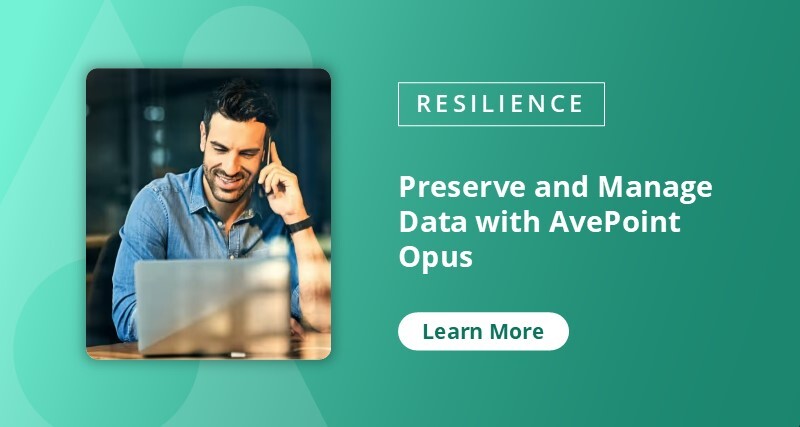The Critical Role of MSPs in Safe and Responsible AI Implementation

In an era where artificial intelligence is reshaping the business landscape, Australian companies stand at a critical juncture: embrace AI readiness or risk falling behind. As a managed service provider (MSP), how are you leveraging this opportunity?
AI is increasingly becoming part of conversations among business leaders looking to improve their operations. The technology is even anticipated to bolster Australia’s GDP by an additional $170 billion to $600 billion a year by 2030. This projected boost underscores the transformative potential of AI, highlighting the urgent need for businesses to prepare for this technological revolution.
According to Microsoft’s Work Trend Index 2024, Australia has a strong generative AI (genAI) adoption, with 80% of Australian leaders believing that AI adoption is vital to maintaining competitiveness. But while the enthusiasm for AI adoption is evident, the path to implementation is fraught with challenges. Businesses must navigate issues of data quality, ethical considerations, and regulatory compliance to ensure their AI initiatives are both effective and responsible.
This is where AI readiness comes in — the set of processes businesses need to undertake to prepare their digital infrastructure. With the multitude of tasks businesses need to do to ensure AI readiness, MSPs can play a huge role in providing their expertise and breadth of solutions to ensure businesses are prepared to jump into AI securely and safely.
This blog will discuss how MSPs can create a robust digital infrastructure for businesses that can support and leverage AI capabilities safely and responsibly.
4 Pillars of AI Readiness: MSP Solutions for Effective and Secure AI
MSPs can help businesses navigate the complex landscape of AI implementation through a structured approach.
The following four key services form the cornerstone of AI readiness, providing a framework for organisations to prepare their digital infrastructure for the AI revolution:
1. Data Management: Building a Strong Foundation
The quality of AI outputs is directly proportional to the quality of input data, making effective data management the bedrock of successful AI implementation. The first step in data management for AI readiness is to clean up redundant, obsolete, and trivial (ROT) data, ensuring that only relevant, high-quality data feeds into AI systems.
MSPs can leverage their expertise to implement robust data management strategies that align with each organisation’s unique needs and goals. MSPs can offer services to centralise data into one platform so businesses can provide a comprehensive data set for AI analysis, ensuring that AI outputs are accurate and relevant.
Managing data doesn’t end there, as data governance is also a must when using data. MSPs can help implement automated governance controls to secure sensitive content and avoid oversharing, which is a high risk for businesses implementing AI in their workspace.
Tools like AvePoint Policies can help enforce automation of workspace permissions and robust file and container policies, including external sharing policies. This also allows MSPs to receive notification of any configuration drifts, with the option to revert the change automatically, ensuring that data remains within the rules set by the organisation.

2. Data Evaluation and Monitoring: Maintaining Accuracy and Security
Continuous data evaluation and monitoring is not just a best practice; this step is vital to ensure that AI continues producing accurate and up-to-date results while protecting highly sensitive information against unauthorised users.
As part of effective data governance measures, tracking and classifying data across the workspace is crucial to help identify which data sets need the most protection, avoid risks of these data being compromised, and to ensure compliance with regulatory bodies. Tools like AvePoint Opus can help MSPs run an AI-powered classification system to identify data at scale. This helps businesses find the information they need faster, and eliminates the need for manual data searches, removing the burden of the task to MSPs or even business administrators.
On top of understanding the types of content in an environment, MSPs must also put permissions in place, ensuring that highly sensitive information that still resides in the workspace remains only accessible to those authorised.
MSPs can use AvePoint Insights to monitor permissions across the tenant, which assists in aggregating sensitivity and activity data, helping identify critical permissions issues and prioritise them for action. This ongoing monitoring helps maintain a secure environment by catching configuration drifts and automatically reverting changes if necessary.

3. Risk Assessment: Proactive Protection for AI Implementation
The ability to identify and mitigate potential risks associated with data security, oversharing, and sensitivity issues is vital for businesses preparing for AI implementation. It not only safeguards the organization’s data but also enhances the effectiveness of AI implementations.
By pinpointing these risks, organizations can take proactive measures to rectify permission errors and implement robust file and container policies to prevent data oversharing. This ensures that sensitive information is adequately protected and only accessible to authorized personnel.
Through tools like AvePoint Insights, MSPs can run a comprehensive risk assessment that provides a clear picture of an organization’s data landscape. It quickly scans the organisation’s environment and generates a detailed risk report, highlighting high-risk action items that need immediate attention. The report provides valuable insights into sensitive items, such as documents shared with external users or broadly accessible within the company. This centralized, easy-to-export risk report is crucial for informing customers about their risk exposure and the necessary steps to mitigate it.

4. Data Lifecycle Management: Automating Information Governance
Data lifecycle management plays a vital role in AI readiness, ensuring that data is accurately captured, managed, and disposed of in a manner that supports efficient and secure AI operations.
Managing the entire data lifecycle – from creation to disposal – ensures that only relevant and up-to-date data is available for AI analysis. This reduces the risk of AI systems processing ROT data, which can skew AI results and lead to poor decision-making.
MSPs can help by applying appropriate lifecycle policies, ensuring that sensitive information only remains in the organization up to when it is needed, assisting with securing businesses’ workspace and ensuring compliance.
Tools like AvePoint Opus can assist with automating the data lifecycle management process, such as data classification, access reviews, and content renewals, ensuring that data is consistently managed according to organisational policies. By automating these processes, MSPs can reduce the manual effort required to maintain data quality and compliance, providing a scalable solution for long-term data management.

AI Readiness Solutions: Driving MSP Business Success
As AI continues to reshape the business landscape in Australia, where its adoption is rapidly growing, businesses that have laid a strong data management and governance foundation will be best positioned to harness its full potential, driving innovation and maintaining a competitive edge in the rapidly changing digital economy.
AI readiness is not just about adopting new technologies; it’s about creating a data-driven culture that values accuracy, security, and responsible use of information. The role of MSPs becomes increasingly crucial in this front. As a trusted MSP, you can offer invaluable expertise and tools to guide businesses through the complex process of AI readiness.
MSPs can leverage a suite of advanced tools and services to enhance data governance, security, and lifecycle management, ensuring that organizations are well-prepared for AI adoption.
By partnering with AvePoint, MSPs can expand their offerings, helping businesses enhance data governance, security, and lifecycle management, ensuring that organizations are well-prepared for AI adoption.
The Instillery, an IT and security MSP, is just one of the many AvePoint partners that successfully implemented a Copilot readiness strategy. The consultancy offered data governance services, which helped generate increased interest from clients, driving revenue growth.
Learn more about how you can implement similar AI readiness and implementation services through our webinars on unlocking data governance opportunities and on building services around Microsoft 365 Copilot.

Phoebe Magdirila is a Senior Content Marketing Specialist at AvePoint, covering SaaS management, backup, and governance. With a decade of technology journalism experience, Phoebe creates content to help businesses accelerate and manage their SaaS journey.



